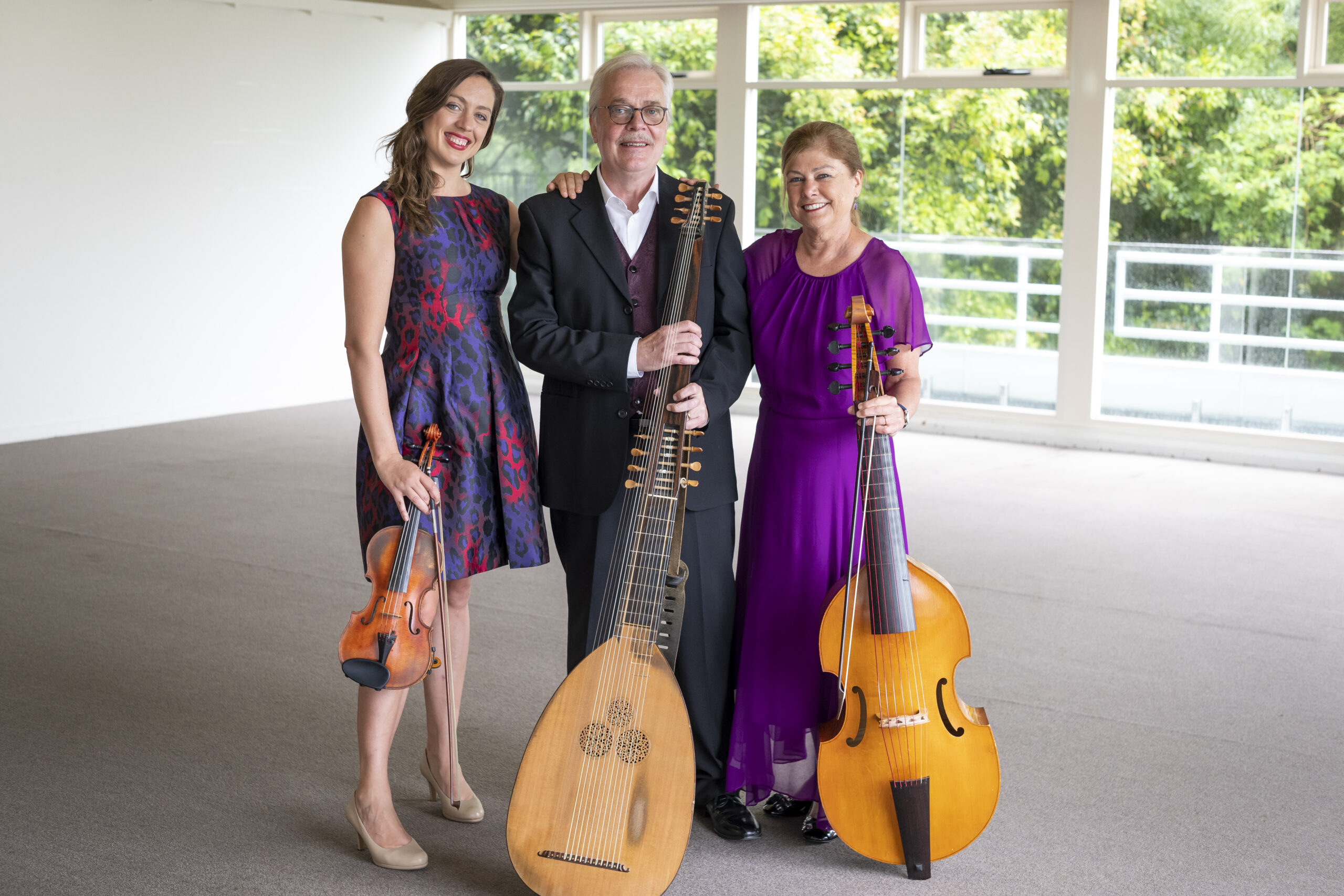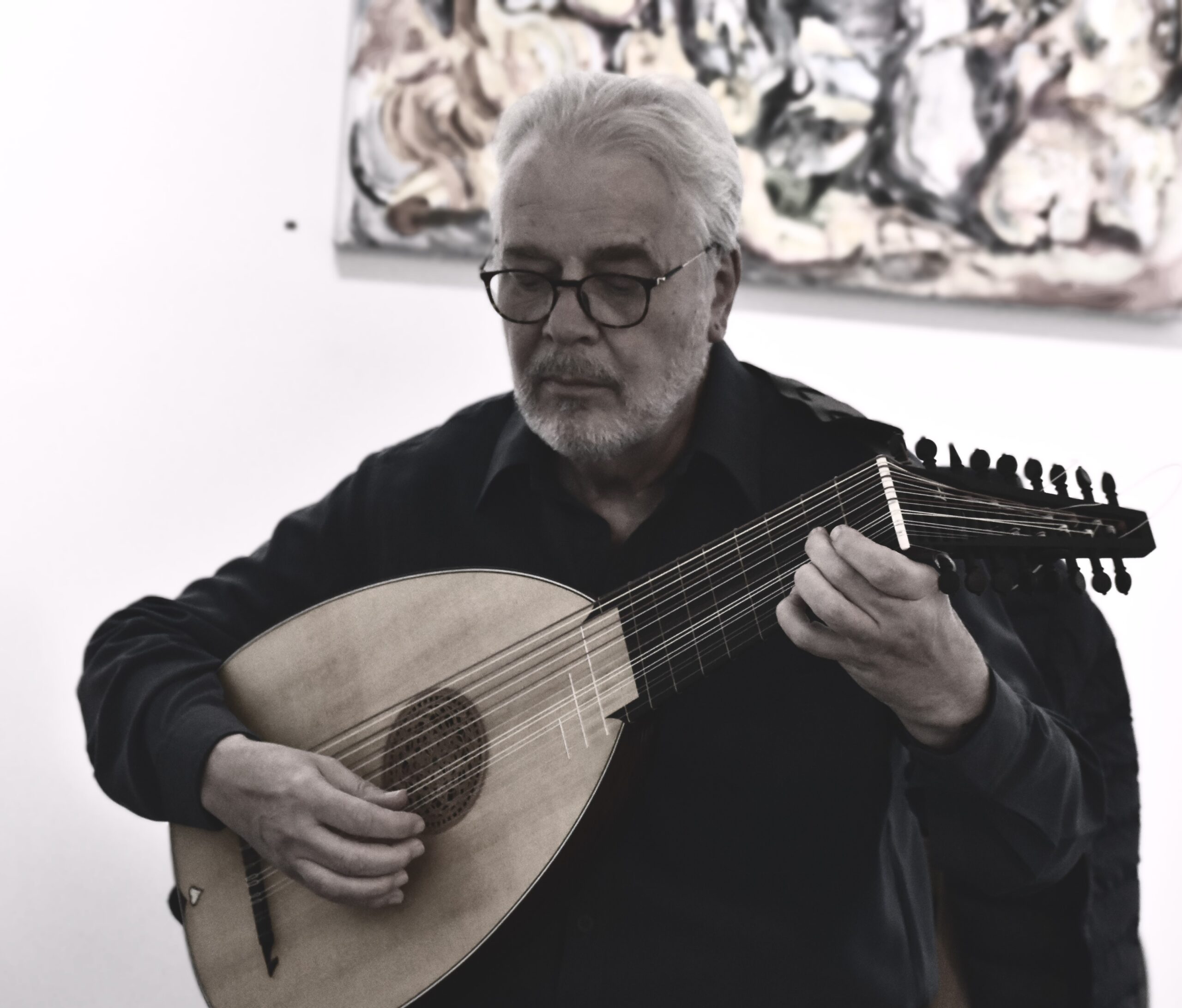Philip Pogson (PP): Tommie, you arrived from Sweden in the mid 1980s via post graduate study in Switzerland. What were some of the similarities and differences you noticed between Australian and European culture back then?
Tommie Andersson (TA): I think that Australia and Sweden were quite similar – there was certainly no great culture shock arriving here. Sydney was more multicultural, and I remember enjoying a plethora of exciting cuisines. When it comes to early music, in the 1980s we all had to go abroad for a few years if we wanted to specialise in our instrumental studies, whether it would be Holland, England or, as in my case, Schola Cantorum in Basel, Switzerland. The difference was that I didn’t return home, I went in the other direction!
PP: Do you remember the first Australian concert(s) you played in?
TA: My first concert here was at the Cell Block in Darlinghurst. I played with Winsome Evans, Fiona Ziegler, and other local musicians, with a visiting German soprano, in Bach’s Coffee Cantata. Another memorable event was my first solo lute recital, in the Joseph Post Auditorium at The Con (Sydney Conservatorium), pre the extensive renovations that went on in the late 1990s. This meant that I was accompanied by the rumbling of underground trains!
PP: You’ve been a founding or core member of so many ensembles from the Australian Brandenburg Orchestra to Ludovico’s Band and The Marais Project. What special characteristics do the lute and guitar families bring to early music, as solo and continuo instruments?
TA: I think that the lute, being a soft and gentle instrument, draws in the listener. Its warm, intimate timbre blends seamlessly with other instruments or the voice, making it a perfect companion in chamber music. For continuo playing you have the option to strum bold chords on a guitar, play the deep bass notes of a theorbo, or improvise a high solo line on a lute.
There is always a perfect choice of plucked instrument and if you have a number to choose from (as I do!), you can vary the performance according to where your fancy takes you. Playing from a figured bass has the added benefit of developing your improvisation skills and to give you the freedom to realise ideas spontaneously.
PP: The upcoming Marais Project show, ‘The Fantastical Life of Daniel Solander’ is built around the journeys of the great botanist, Dr Daniel Solander. Solander being first Swede to visit Australia in 1770. Can you give us a little background on this larger-than-life figure?
TA: Daniel Solander was born in 1733 in Piteå, which is in the very north of Sweden. He studied botany with the celebrated Carl Linnæus at Uppsala University in the 1750s and then went on to England in 1760 to catalogue the natural history collections of the British Museum. In 1768, Solander gained leave of absence to accompany Joseph Banks on James Cook’s first voyage to the Pacific Ocean aboard the Endeavour. He was the first university-educated scientist to set foot on Australian soil, and the first Swede to circumnavigate the world.
It is a pity that until fairly recently, Solander did not get the recognition accorded to Sir Joseph Banks.
PP: Finally, we’d love to have an outline of the broad array of music you and Jenny Eriksson have selected for the performance and interspersed with excerpts from James Cook and Joseph Banks’ journals.
TA: Jenny and I decided to include music that illustrates the historical context and the juxtaposition of Solander’s background and the continent he explored. As a result, we have songs by Bellman, the national poet of Sweden and its greatest songwriter, and instrumental music by Wikmanson, written around the time when Solander set foot in Australia. We also chose traditional fiddle tunes and songs from the province of Dalarna in Sweden, north of Stockholm. Dalarna is still one of the great folk music regions of Sweden. The Marais Project performed there in 2023.
In addition, I found and arranged two songs from the late 1830s illustrating the early conflicts between Aborigines and settlers by Isaac Nathan. Nathan was Australia’s first composer and is often referred to as the Father of Australian Music. He is a direct ancestor of the conductor, Sir Charles Mackerras. Listeners will also hear a song called ‘The Steets of Forbes’ about the bush ranger Ben Hall – my wife’s great uncle! In the collections of Sydney Living Museums, we also found several songs and dances popular in 19thcentury.
This broad range of music is combined with an actor reading excerpts from the diaries of Captain Cook and Joseph Banks, most of which reference their time with Solander on the east coast of Australia. For me as a Swedish-Australian, it is fascinating! Something I did not imagine doing in the 1980s.
*******
What: The Marais Project presents The Fantastical Life of Daniel Solander
When: 3pm Sunday 23rd November 2025
Cost: Tickets $50/$35/20
Where: Philharmonia Choirs Rehearsal Studio 1 Wharf 4/5, 15 Hickson Road, Walsh Bay Precinct
Media: for more information, artist details, photos, review tickets, interviews & more, contact Philip Pogson m: 0412 459 156 e: philippogson@theleadingpartnership.com.au or Jenny Eriksson m: 0412 459 155 e: jennyeriksson212@gmail.com


